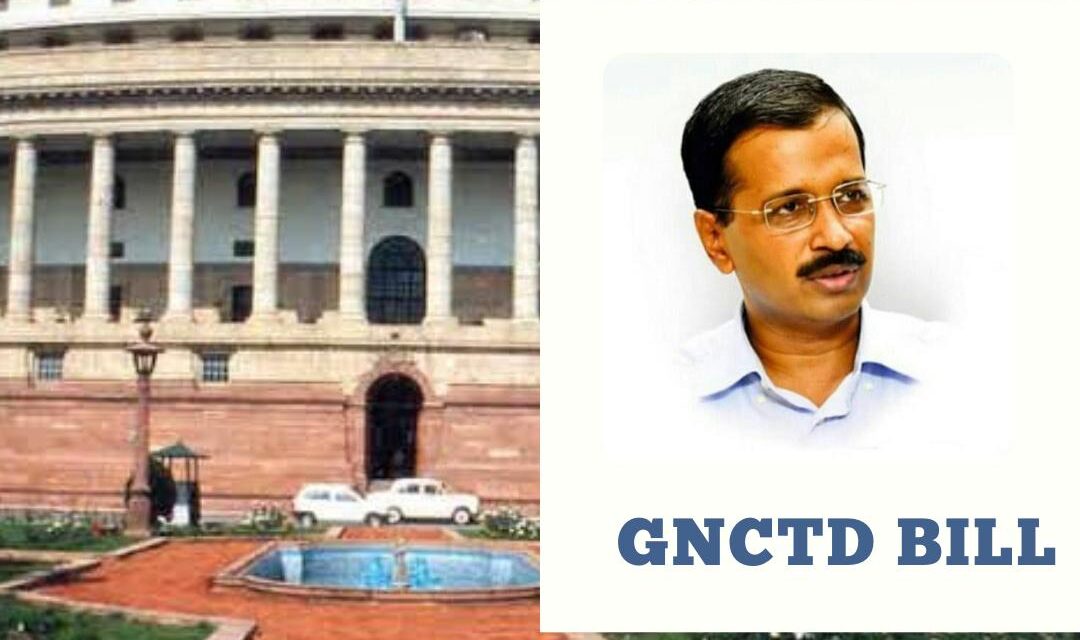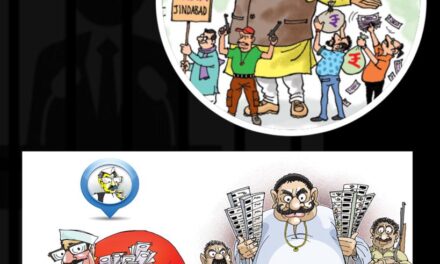Government of National Capital Territory of Delhi, Act 2021


Kumar Kartikeya
The Union government presented the Government of National Capital Territory of Delhi (Amendment) Bill, 2021(“GNCTD”) in Lok Sabha, reigniting the debate over the division of powers between the elected government and the Lieutenant Governor. With this, the Union Government and Delhi Government are again at odds with the jurisdiction of the elected government. Both governments had a tussle regarding the same, post the Supreme Court’s Constitution Bench, which tipped the scales in favor of the elected government through its verdict in the 2018 judgment.
What does the bill say?
The Bill, as amended in different parts, requires the government to submit files to/seek the opinion of the Lieutenant Governor before implementing any decisions. The Bill proposes replacing the term “Government” in the Act with the title “Lieutenant Governor” — a central government appointee who is always seen as working for the benefit of the Centre. The Bill states that “the term “Government” shall refer to the Legislative Assembly in any law made by the Legislative Assembly.”
In Section 44 of the GNCTD Act (1991), the Bill amends that before taking any executive action in pursuance of a decision of the Council of Ministers shall consult Lieutenant Governor. The view of Lieutenant Governor shall be received on all subjects as may be defined, by a general or special order, by Lieutenant Governor in line with Article 239AA (4). This is among the main proposed amendments, one that expressly states that the word “government” in any legislation passed by the Legislative Assembly refers to the Lieutenant Governor.
The Union claims in the “statement of objects and reasons” that the amendment Bill intends to bring clarity to the Supreme Court’s interpretation and specify the roles of the elected government and Lieutenant Governor in accordance with the Constitutional scheme.
What did the constitutional bench of the Supreme court say?
The Constitutional bench of the Supreme court said that the Lieutenant Governor’s approval is not required on matters other than police, public order, and land. The court further added that “It has to be clearly stated that requiring the prior concurrence of the Lieutenant Governor would absolutely negate the ideals of representative governance and democracy conceived for the NCT of Delhi by Article 239AA of the Constitution,” [State (NCT of Delhi) v. Union of India, (2018) 8 SCC 501]. The court stated that Lieutenant Governor was obligated by the assistance and guidance of the council of ministers. Court went on to explain that the ‘aid and advice’ clause applies only to issues on which the elected Assembly has authority under the State and Concurrent Lists, with perhaps the exception of law and order, police, and land; where the Lieutenant Governor and the elected government disagree, the former should refer the question to the President.
The Court was careful to point out that the authority to refer “any matter” to the President did not simply imply that “every matter” should be referred to in this manner. The guiding principle was that the unelected administrator could not weaken the elected government. It also stated that the elected government should therefore remember that Delhi is not a state.
Parliament passed the amendments, what hereafter?
Persuaded by the Supreme Court ruling, the elected government ceased submitting files on executive matters to the Lieutenant Governor prior to implementing any decision. It has kept the Lieutenant Governor informed of all administrative changes, but not always before applying or carrying out any decision. However, if passed, the amendment could compel the elected government to seek advice from the Lieutenant Governor before acting on any cabinet decision. Which prima facie does not appear to be in accordance with the 2018 Supreme Court’s ruling? Delhi being a Union Territory; making territory with an elected House to be the sole domain of the Lieutenant Governor seems odd. The Supreme Court correctly concluded that the framework outlined in the Constitution and the GNCTD, 1991, envisions a synergetic combination that can only be accomplished through the constitutional framework and basic confidence in the working of the same. In the present scenario, the Lieutenant Governor can consult the president only when there is a dispute of opinions between the Lieutenant Governor and the elected government of Delhi. After implementation, the Lieutenant Governor can consult the President for “each and every” decision and the wills and consent of the elected government will not even be a mere formality.
The bill makes null and voids any rule that enriches the Assembly or its Committees to debate any matter of day-to-day governance or conduct investigations amount to a reversal of representative government. The notion of a ‘Union Territory’ is based on the very idea of federalism in which India governs relations between the Centre and its constituent units. It should not be used to weaken the foundations of a representative democratic structure. With this idea of the bill, what are the use of a 70-member assembly and 62 elected members of AAP when they cannot make their decisions regarding the welfare of the citizens? The amendments would have far-reaching consequences that go beyond the squabble. The amendments effectively abolish the elected government’s independence and the state’s desire for full statehood by requiring all its files to be routed through the Lieutenant Governor.
The question that remains above all is that, without the mandate of the people of Delhi, should the LG, be the competent authority to the national capital? And should a back door administrative entry be acceptable in a democracy?
Author Kumar Kartikeya is a student of law and co-founder of The Policy Observer. He tweets from @kumarkartikeyad.
(The opinions expressed in this publication are those of the author. They do not purport to reflect the opinions or views of The Policy Observer or our members.)
Related Articles
Taliban Express
The winds of Kabul have been slave to no outsider, considering the fact one can merely comprehend, if it’s time for new shackles for its people and women who for past twenty years were in absolute hope to see their country at peace and a worthy home to next generations.
Ministry of Cooperation: Time to Revisit the History since Rochdale
With all said and done, the newly born ministry faces serious political and administrative challenges ahead. The first serious challenge comes as to checking the politicization of the cooperatives and running the administration based on the market’s norms. It is here that the Ministry can fall back again on the Rochdale Principles.
Questioning the impartiality of the Election Commission
Almost 70 years have passed since then, and though our country now has far more resources and a much more knowledgeable population base to hold elections with, there have evidently been some red flags about how people perceive the electoral system. The Election Commission, long considered the most prestigious of Indian organizations, has now come under fire from multiple fronts.









